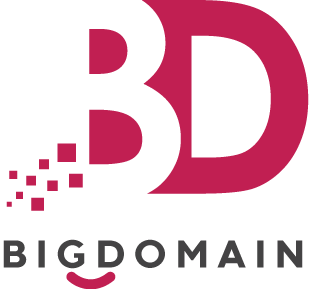As the digital era continues to shape industries and economies worldwide, the development and expansion of Data Center (DC) hubs in Malaysia have emerged as a crucial factor for capturing the opportunities presented by this digital revolution.
The significance of building a robust DC hub network in Malaysia and the potential benefits it can bring to the nation.
- Enabling Digital Transformation:
Data centers form the backbone of the digital infrastructure, supporting the storage, processing, and distribution of vast amounts of data. By expanding the DC hub network, Malaysia can provide the necessary infrastructure to facilitate digital transformation across various sectors. This will enable businesses to embrace emerging technologies such as Artificial Intelligence (AI), Internet of Things (IoT), and Big Data analytics, driving innovation and efficiency. - Attracting Foreign Direct Investment (FDI):
A well-established DC hub network can attract significant Foreign Direct Investment (FDI) into Malaysia. Global technology companies and multinational corporations often seek locations with reliable and advanced data center infrastructure to establish their operations. By positioning itself as a regional hub, Malaysia can attract FDI, creating job opportunities, fostering knowledge transfer, and stimulating economic growth. - Enhancing Data Security and Privacy:
An expanded DC hub network can enhance data security and privacy within Malaysia. By establishing robust data centers, the country can ensure the safe and secure storage of sensitive data, mitigating the risks associated with cyber threats and data breaches. This will build trust among businesses and individuals, encouraging greater adoption of digital services and strengthening Malaysia’s position as a trusted digital hub. - Facilitating Cloud Computing and Digital Services:
The growth of DC hubs in Malaysia will facilitate the development of cloud computing infrastructure and digital services. Cloud computing enables businesses and individuals to access computing resources and services on-demand, driving scalability and cost-efficiency. With a robust DC hub network, Malaysia can support the expansion of cloud service providers, promote the development of local digital services, and encourage the adoption of cloud-based solutions. - Supporting Sustainable Development:
An expanded DC hub network can contribute to Malaysia’s sustainable development goals. Data centers can be designed and operated with energy-efficient practices, reducing carbon footprints and minimizing environmental impact. By adopting green technologies and promoting sustainable data center operations, Malaysia can demonstrate its commitment to environmental stewardship and position itself as a sustainable tech hub.

Tengku Datuk Seri Zafrul Abdul Aziz, Minister of Investment, Trade and Industry, tells The Edge in an email response how Malaysia aims to cope with these problems and why the government sees DCs as a “lead generator” for additional technology businesses to consider Malaysia for their operations.
Tengku Zafrul: Asean’s digital economy is predicted to be worth $2 trillion by 2030, up from $300 million today. To capitalize on these potential, Malaysia must create and expand its DC hubs.
Malaysia has made significant investments in cutting-edge digital infrastructure, such as cable landing stations, more undersea cables, 5G, and better fiber connectivity. Malaysia has also piqued the interest of global DC players due to its ease of doing business, strategic geographical location, reduced cost of entry, abundance of land, and increasing emphasis on renewable energy (RE) to minimize DCs’ carbon footprint.
Since the government of Malaysia announced plans to regulate cryptocurrencies, the country has been quite active in the market. Malaysia’s economy is anticipated to be greatly impacted by digital currencies.
The following are some of the major drivers that are anticipated to propel economic growth in the nation:
- Improving Access to Finances
People who have been left behind in traditional financial services, such as the underbanked or unbanked that exist in Malaysia, can now receive financial services thanks to digital currencies, which are economic tools. Lower transaction costs, round-the-clock availability, cross-border payments, and increased security are all possible with digital currency. As a result, there are more options for people to engage in the economy and access a wider range of financial services and investment opportunities. This also fosters a more inclusive finance environment.
- Increased access to global markets
DC has erased geographical restrictions, allowing Malaysian enterprises to more easily reach foreign markets. Businesses have been able to broaden their reach and customer base as a result of this. Malaysia’s DC sector has the potential to become a major exporter of goods and services to worldwide markets, making it an appealing investment destination.
- Increase in tourism
Malaysia’s tourism business has the potential to benefit from the DC industry. Tourists may now explore and book their vacation plans more easily thanks to digital channels such as online travel companies and booking websites. As a result, Malaysia’s tourism earnings has increased.
- Improved company efficiency
Businesses may now streamline their processes and boost efficiency thanks to DC. Businesses, for example, can automate inventory management, lowering the risk of stockouts and oversupply. This has resulted in cost reductions for organizations as well as increased consumer satisfaction.
Conclusion:
Building and expanding the DC hub network in Malaysia is essential to capitalize on the opportunities presented by the digital era. It will enable digital transformation, attract FDI, enhance data security, facilitate cloud computing, and support sustainable development. As Malaysia continues its journey towards becoming a digital nation, investing in a robust and advanced DC hub network will be a key enabler, positioning the country as a competitive player in the global digital economy.
For more information :





